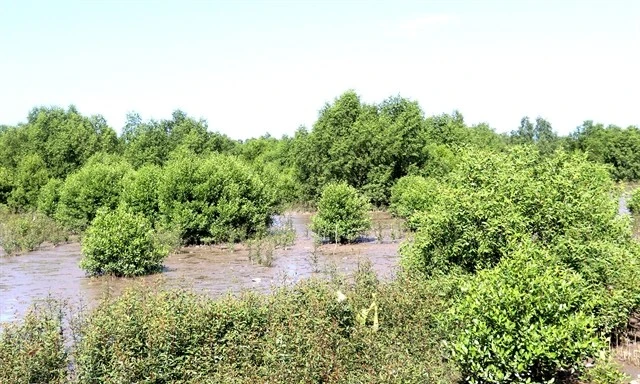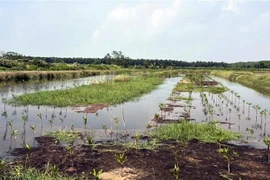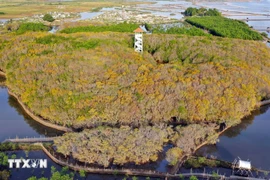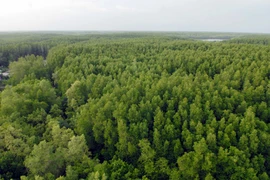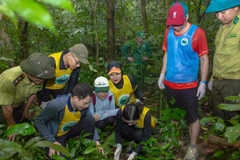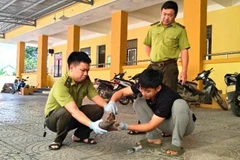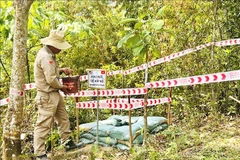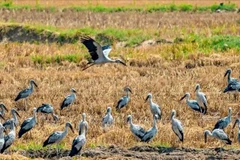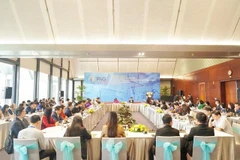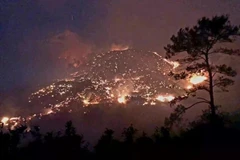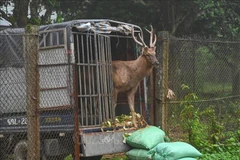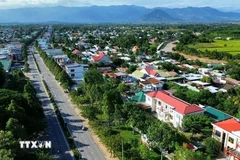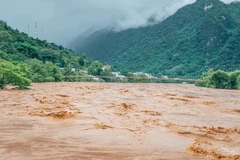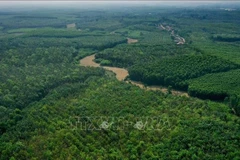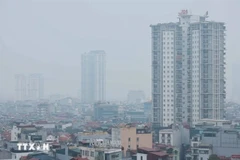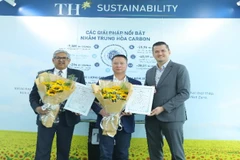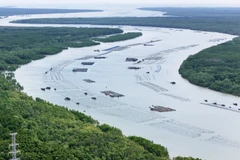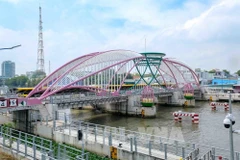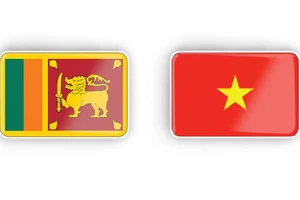HCM City (VNS/VNA) - Authorities in the Mekong Delta are implementing various programmes to grow mangrove forests to protect coastal areas and improve the incomes of local people.
The delta, which comprises 12 provinces and Can Tho city, has the largest area under mangrove in Vietnam, but these forests have been impacted by climate change and human activities, and are shrinking in size.
The southernmost province of Ca Mau has the longest coastline among the delta’s localities but is severely affected by erosion, which causes significant damage to its mangrove forests.
Over the past 10 years the province has lost 5,200 ha of mangrove, while 190km of its 254km coastline is suffering from erosion, according to the province’s Forest Protection Sub-department.
Ca Mau has implemented numerous projects and programmes to grow, restore and protect mangrove forests.
One such project is the “Mangrove and Climate Protection Combined with Income Generation for Vulnerable Communities” (VM069), which began in April 2021.
Funded by Bread for the World and the Ca Mau People’s Committee, the project is budgeted to cost 940,000 EUR (980,000 USD). It has been implemented in Ngoc Hien district’s Dat Mui commune and Nam Can district’s Tam Giang Dong commune.
The project has yielded positive results, such as establishing hamlet-level forest self-management groups with a total of 368 members, providing local residents with training in forest cultivation and protection methods and supporting the planting of 10ha of new forests as well as new trees in 30ha of existing forests.
Last year the province launched several programmes to grow and restore mangrove forests, including one to plant 250,000 trees in Tran Van Thoi district’s Tran Hoi commune and the “Forests for Children” project in Nam Can district.
On January 16, the Soc Trang provincial Department of Agriculture and Rural Development held a conference to launch a project aimed at increasing the coastal resilience of the Mekong Delta through mangrove forest restoration and nature-based solutions in Soc Trang.
The project costs 497,088 USD and is funded by the Coca-Cola Foundation through the International Union for Conservation of Nature.
It is being implemented in Soc Trang and neighbouring Bac Lieu province until the end of next year.
In Soc Trang, the project covers Vinh Chau town and Cu Lao Dung district.
According to Do Van Thua, deputy head of the Soc Trang Irrigation Sub-department, the project seeks to restore mangrove forests within the East Sea dyke system and promote shrimp farming using recirculating aquaculture systems (RAS) alongside developing aquaculture in mangrove areas.
The project will provide financial support to 22 households to purchase RAS equipment and mangrove seedlings, restore nine hectares of mangrove forests within the dyke and offer technical assistance as well as nature-based solutions to local people.
In Ben Tre province, authorities are prioritising the protection and expansion of mangrove forests to reduce the impacts of natural disasters on the safety and property of local people.
Since 2020 the province has planted 205ha of new forests and regenerated 82ha of natural forests. It aims to increase its forest cover to 2% this year and to 2.1% by 2030.
Forest-aquaculture farming
The delta’s coastal provinces have allocated mangrove forests to local households for protection and sustainable use.
These households are encouraged to breed aquatic species in mangrove forests to increase their incomes. This forest-aquaculture farming model is sustainable, producing clean products while being environmentally friendly.
In Tra Vinh province, farmers are practising this model on 5,750ha in coastal areas, according to the Department of Agriculture and Rural Development.
On average, they earned a profit of 150 million VND (5,900 USD) per hectare last year.
Huynh Van Tai, a farmer in Duyen Hai district’s Long Vinh commune, has been practising this model for six years on four hectares of forest land.
He uses 60% of the area for breeding shrimp, mud crabs and other aquatic species, and the rest for growing trees.
He said he only needs to spend on buying brood stock since the aquatic creatures mostly consume natural foods found in the forests.
This farming method earns him an average annual income of 350 million VND (13,800 USD), he said.
Many forest-aquaculture areas in the delta use ecological farming methods to raise shrimp and other aquatic species.
Hua Van Thon, the owner of a three-hectare ecological forest-shrimp farming area in Ca Mau province's Ngoc Hien district, said: “This farming method generates 10–30% more profit than traditional farming methods. It is completely safe and requires almost no machinery or heavy labour while also providing a stable income.”
Phan Hoang Vu, Director of the Ca Mau provincial Department of Agriculture and Rural Development, said farmers who breed shrimp in mangrove forests in Nam Can and Ngoc Hien districts earn an average income of 80 million VND (3,200 USD) per hectare per year.
The ecological shrimp farming model has demonstrated its ability to achieve a balance between economic development and environmental protection, he said.
Farmers are required to grow and maintain forests, sustainably exploit resources, and ensure the proportion of forest cover in forest-aquaculture farming areas conforms to regulations, he said.
This model increases the forest cover, protects land, prevents erosion, and strengthens resilience against the impacts of climate change, he added./.
